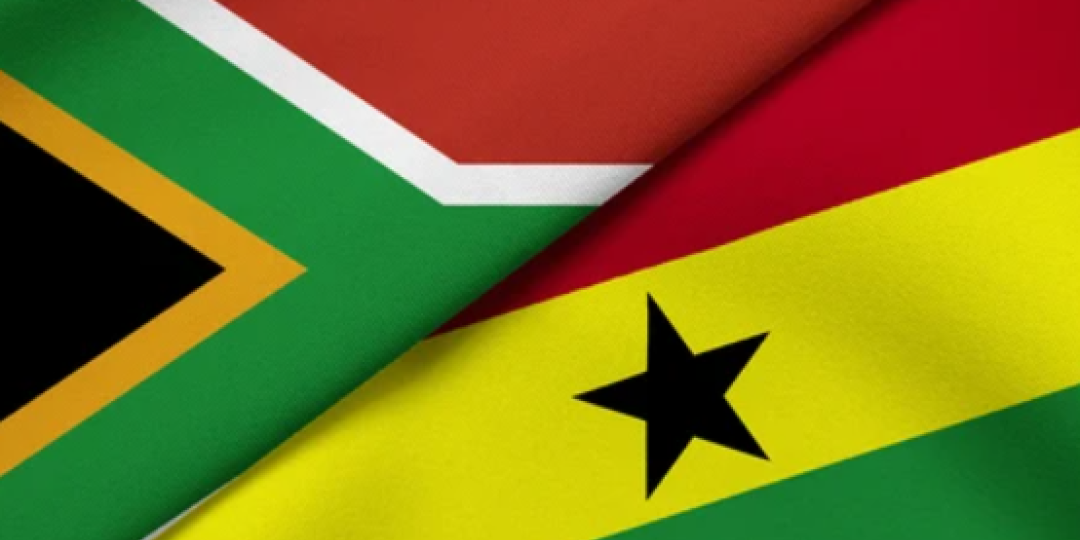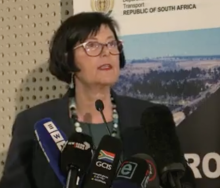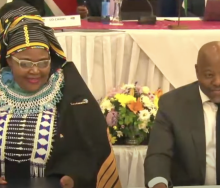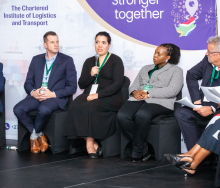South Africa’s first exports under the African Continental Free Trade Area (AfCFTA) were loaded on to vessels at the Port of Durban on Wednesday, marking what exporters and government leaders have described as a historic and significant milestone to boost trade on the continent.
Speaking at the launch to mark the start of the country’s first exports to be dispatched under the preferential trade agreement, President Cyril Ramaphosa said the shipment demonstrated that AfCFTA had become a reality.
“We are in the port city of eThekwini taking forward the dream of an ever larger and ever stronger Africa. African countries trade with the rest of the world but we have limited trade among ourselves,” Ramaphosa said.
According to the African Union (AU) data, intra-Africa exports stand at around 16% of Africa’s total exports, compared with Asia’s 55%, North America’s 49% and the European Union’s 63%.
“The reason for this is clear: we are principally exporters of raw materials, selling rocks and black liquid to the world, instead of harnessing our oil and the minerals to industrialise our continent.”
AfCFTA creates the world’s largest free trade area by number of countries, and has the potential to bring transformative change and tremendous opportunities to African economies and businesses. Its implementation will accelerate the development of regional and local value chains, offering investors access to a population of 1.7 billion people with a fast-growing continental GDP.
Ramaphosa said trade ministers had been finalising the rules of origin of what constituted an “African product” over the past few years and had approved 92% of products that countries traded with each other.
“The products that we trade among ourselves must truly be ‘made in Africa’. The modalities for trade in goods has moved faster than for services. We therefore need to put more effort into building African champions in finance, retail and telecommunications, and in expanding tourism between African countries,” said Ramaphosa.
He said industrial development was core to Africa’s integration as it built productive capacities, added greater value to products and diversified trade beyond traditional commodities.
“We have already seen the potential of greater cross-border collaboration,” he said.
This included South African automotive companies that source leather car seats from a factory in Lesotho that employs almost 1 000 workers, and wiring harnesses from two plants in Botswana.
“They source copper wire from Zambia, rubber from Côte d’Ivoire, Nigeria, Malawi, Ghana and Cameroon, and steering wheel components from Tunisia. These are installed in cars that are then exported from South Africa to other parts of the world.
“These inputs alone accounted for more than $200 million-worth of products traded among African countries and the scope to do more is available to us.”
He said there were vast export opportunities across sectors from food and beverages to cars trucks, clothing and textiles.
“We have the capacity to produce more of our own pharmaceutical products and medical equipment. Investment can flow to the production of chemicals, machinery and equipment, household goods and many, many more,” said Ramaphosa.
Among the first Proudly South African products loaded for export under AfCFTA, headed to Kenya and Ghana this week were recycled copper produced by Reclamation Group, Defy fridges, grinding balls produced by Grinding Media South Africa, cement produced by Natal Portland Cement, Beier Group safety shoes and boots, and smart electrical meters made by Conlog as well as fresh produce and pharmaceutical goods.













